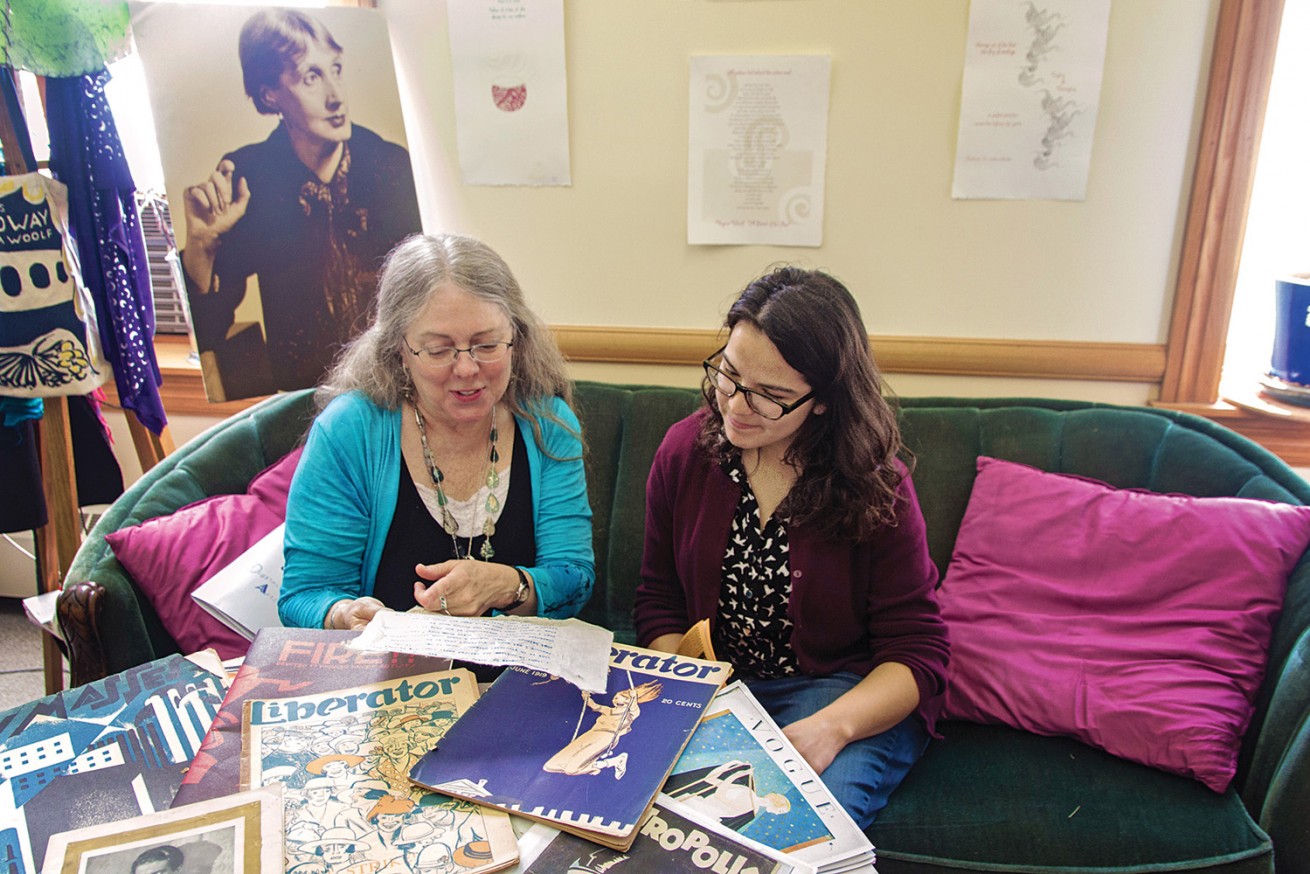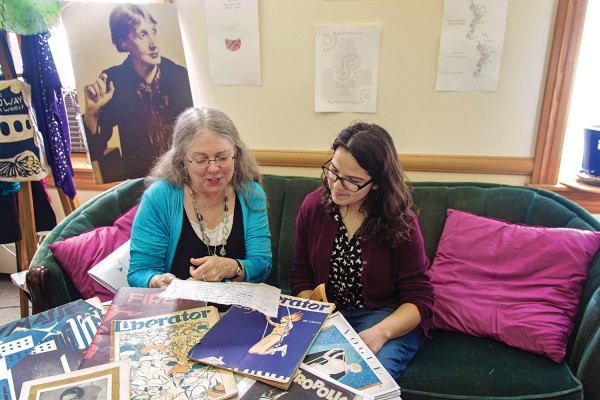
A Professing of One’s Own—with Virginia Woolf
Leslie Kathleen Hankins, professor in the department of English and creative writing since 1992, teaches courses ranging from avant-garde and international films of the 1920s to arts, meditation, and the wilderness (at the Boundary Waters of Minnesota). She publishes widely and was president of the International Virginia Woolf Society 2012-2015. She holds a Ph.D. and M.A. from the University of North Carolina at Chapel Hill, a B.A. from Duke University, and is currently a candidate for the graduate certificate in the book arts at the University of Iowa Center for the Book.

Once upon a time, as a new professor at Cornell, coming—as professors do—from a large university that expected a specialized research agenda, I was perplexed. That model was not appropriate for Cornell, but what was, I wondered? What I found missing was a bridge between specialized scholarly work and the wide-ranging courses I taught at the college. As usual, Virginia Woolf saved the day, for in addition to starring in much of my scholarship, she became the mentor for my professing. As her writings, such as “A Room of One’s Own ” and “Three Guineas,” demonstrate, Woolf was a brilliant teacher and a tireless researcher—though she had scathing things to say about the academic institutions that she recognized as bastions of male privilege, and she openly despised lecturing and authoritarian teaching modes.
So, Woolf became the architect of the bridge needed: a research agenda that was sensitive to time constraints, that enriched the classroom, and that could be accomplished and shared in intense, focused modules, rather than the years a scholarly monograph required. Woolf configures research as generating questions with the common reader. Her writings relinquish authority, empower the reader, and invite participation; they inspire highly interactive, de-centered, discussion-based classes.
“Three Guineas” led me to debunk the toxic myth of a disconnect between teaching and research. We need both. Research unshared is sterile, and teaching without active researching risks becoming derivative, or empty performance art. Teaching cannot happen without scholarship—what else do we teach? And, if we don’t participate in creating the knowledge we want to teach our students, we are limited to teaching knowledge created in research universities. Our research, therefore, plays a vital role in the wider academic world, reclaiming the intellectual enterprise for the undergraduate classroom.
Thus, with Woolf in mind, over time I have developed a modular research agenda that dovetails well with the block plan, by presenting my research and networking at conferences, forging rich connections with scholars and teachers, publishing in my field internationally, and bringing it all back to my courses.
Consider English 365, Comparative Literature and Cinema, exploring the little magazines and little films of the modernist period (early 20th century). Our class plunges into the vast hordes of little magazines as archival digs, not knowing what we will find. No prepackaged anthologies here! In class, students handle vintage magazines and film programs from my personal archive. In transformative, hands-on, free-wheeling digs, students develop unique research and creative projects that demonstrate what can happen when eager minds have unlimited fresh resources to explore, and the opportunity to figure out for themselves innovative ways to tackle them.
One success story, Laura Michelson ’16, is on the bridge. She fell in love with archival research and has a fall research fellowship at Newberry Library in Chicago. Then she plans to continue her passion for research, particularly in historic print culture.
